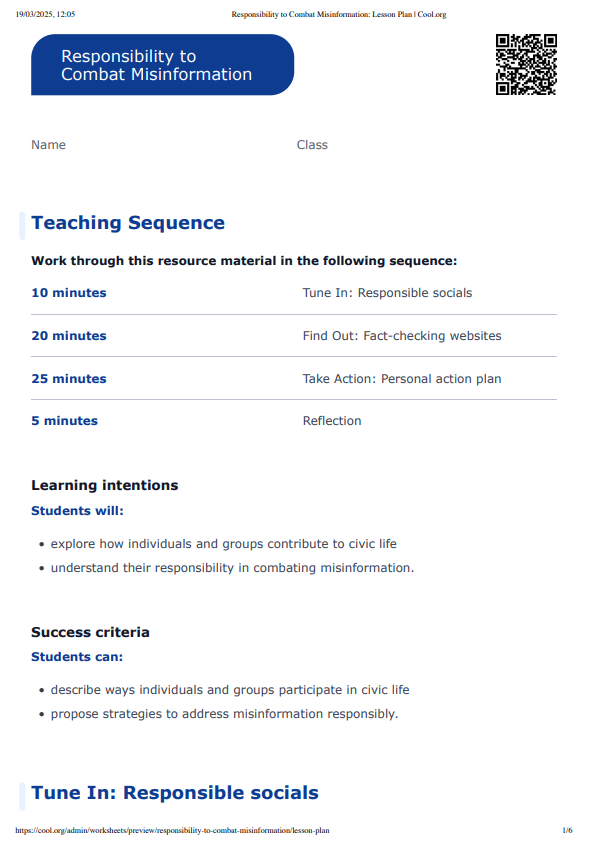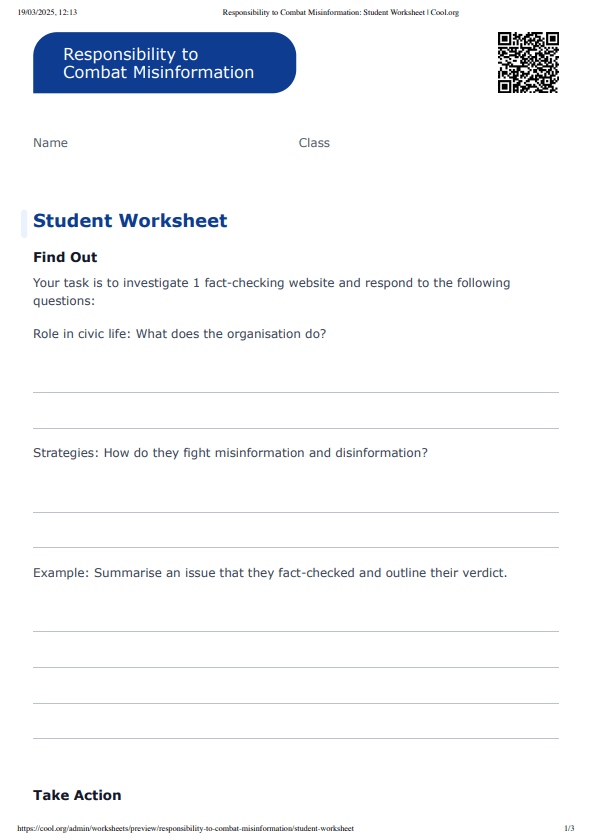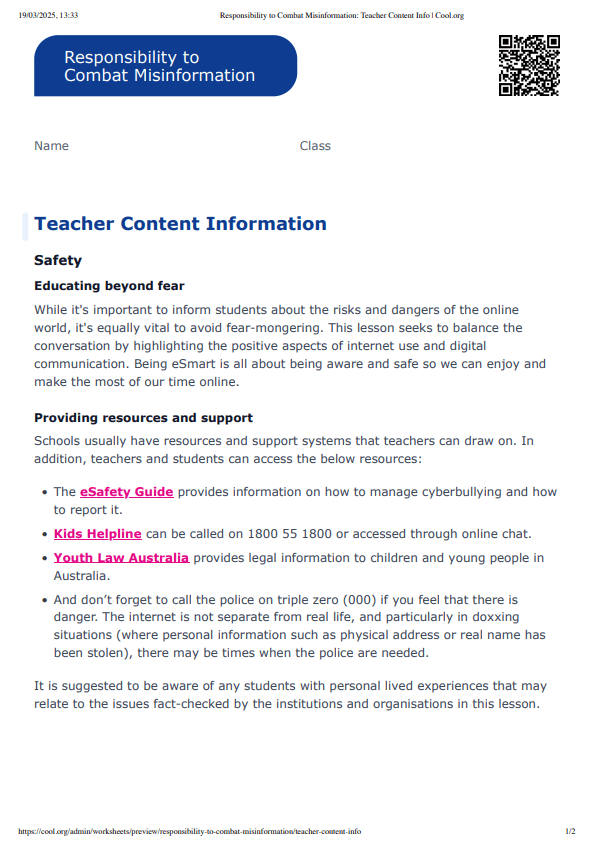Learning intentions
Students will:
- explore how individuals and groups contribute to civic life
- understand their responsibility in combating misinformation.
Success criteria
Students can:
- describe ways individuals and groups participate in civic life
- propose strategies to address misinformation responsibly.



